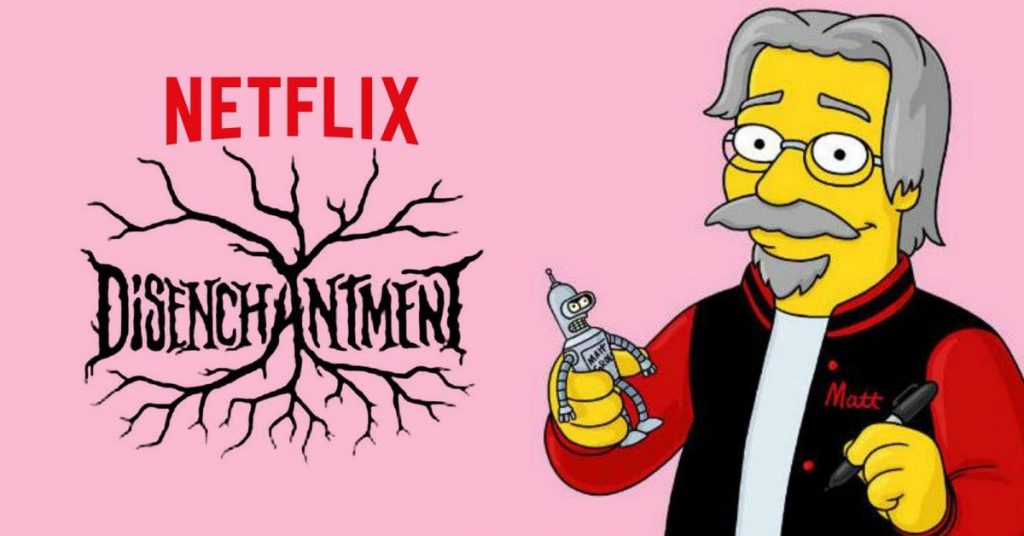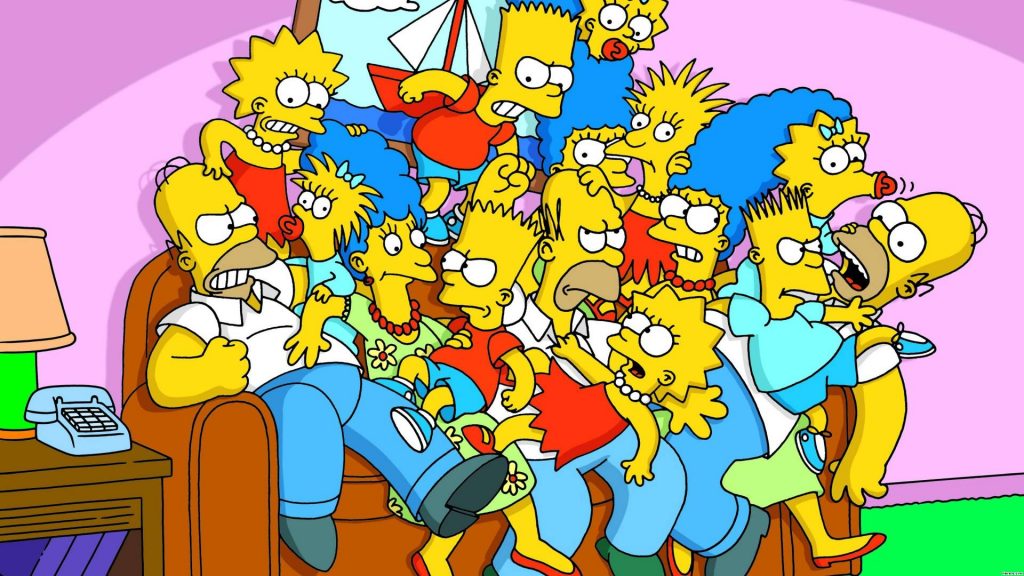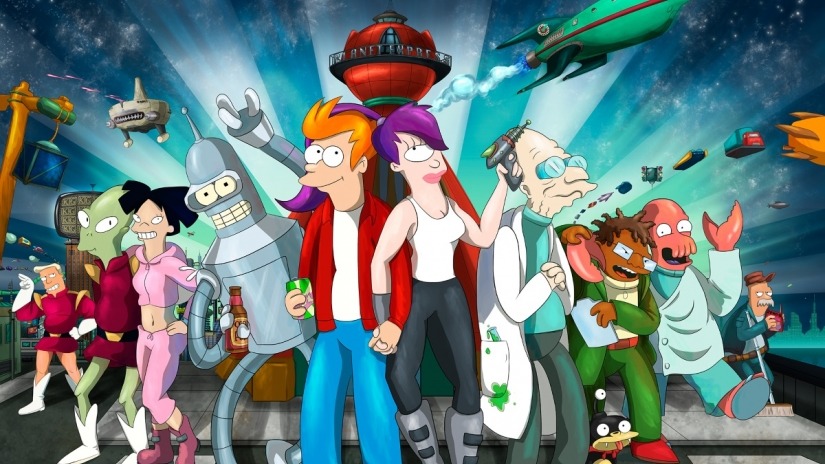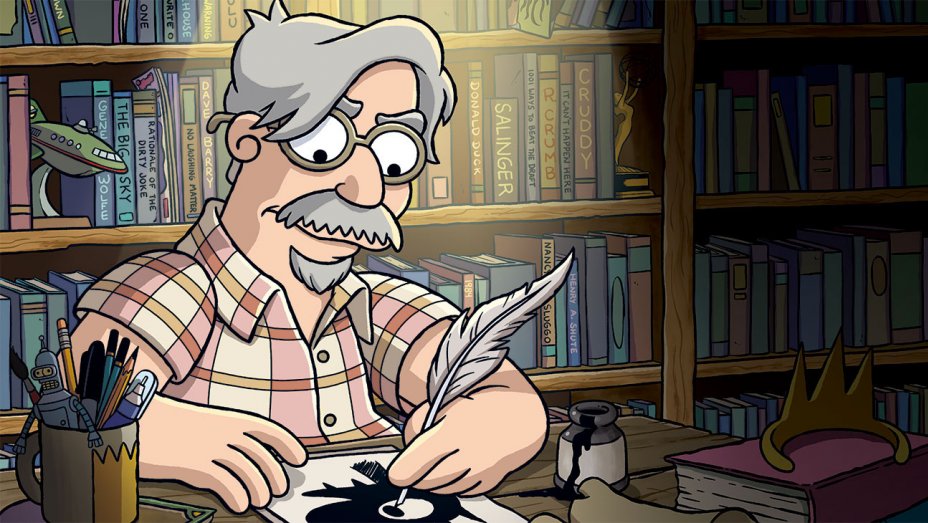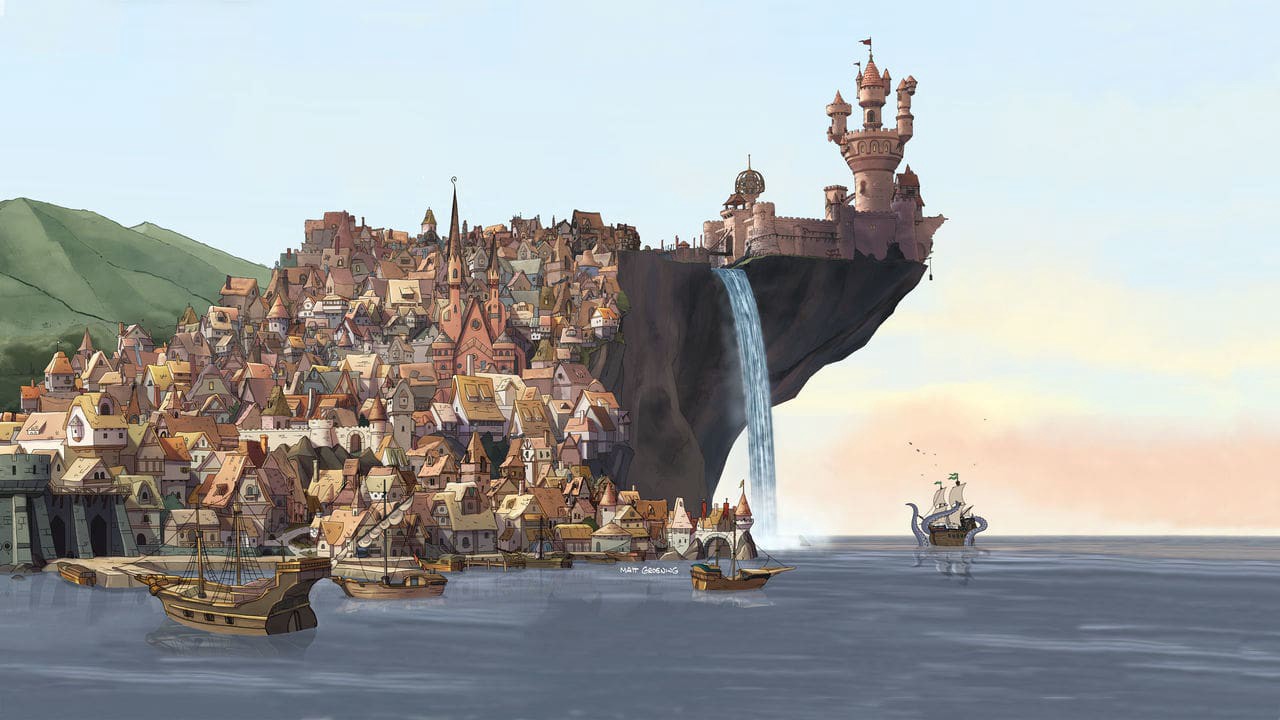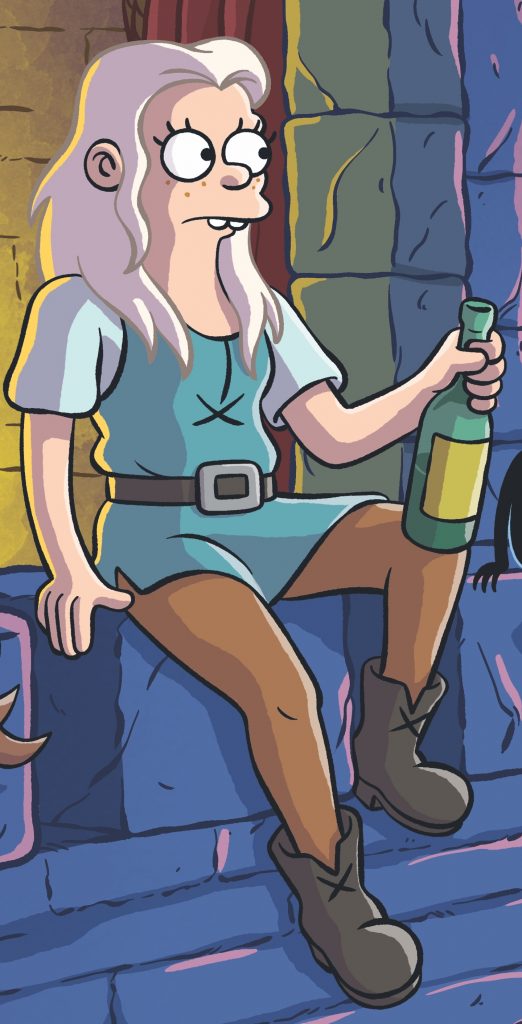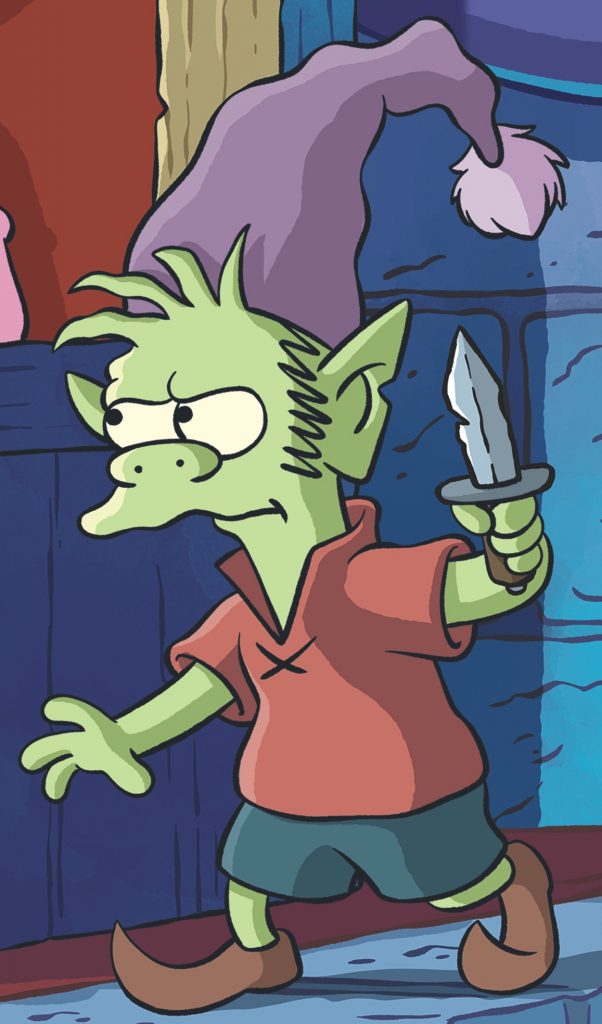The following is a Two Part Piece on Disenchantment and The History of Matt Groening’s career. If you’d like to read about only Disenchantment, skip to that section ahead.
On the corner of Sunset Boulevard in the 1970’s, at the licorice pizza record store where he worked for minimum wage, was a fresh to scene comic book artist distributing copies of his self-published zine for pennies.
The zine itself was about an angry wake-up call of sorts. About working class conditions. About how adult expectations and unwarranted responsibilities were beset upon the baby boomer generation. How unfair it was to be the first children after the world’s biggest war with no guidelines in how to rebuild. The byproducts of the ‘Greatest Generation’, these ‘baby boomers’, didn’t have a cause to fight for. This led to waves in the era – ripples in rebellion throughout cultural Woodstock and punk movements. And why not? The world was left for them to fix; the expectations of labor and this laden destiny to become the greatest working class of the modern era – all their burden to bear.
Though this didn’t come as naturally for everyone. For some, the 1980s were a rough time of adjusting adulthood and the question of, “What was the point of life” loomed on the bastard children of a generation. And so this zine, rightfully titled ‘Life in Hell’ was all about that. A voice for the rebellious boomers dissatisfied with the status quo, what they were supposed to do, and why? It was an antsy, rebellious, and irritated rant for those coming of age in the late 70’s-mid 80’s. Perfect for the outrage of the college campus scene and at a critical point where things like The Lampoon and Mad Magazine lay dying.
Initially, nobody was reading it – but over time it gained steam. Its creator would go on to revolutionize TV animation and comedy history.
Obviously from the title of this article, you’ve guessed that this was indeed, Matt Groening.
His story begins on a sweltering Friday evening in the middle of August. He came to California like many other dreamers before him, looking to break into the industry. Minutes getting into Los Angeles however, his car had broken down in the fast lane of a busy Hollywood Freeway. To top it off, the DJ on the radio was drunk and ranting about having just been fired, proceeding to prepare his plans to kill himself on air. Alright, maybe not kill himself, but you must admit it makes for a bitter story.
None of this was a good sign. But Matt persevered, working odd jobs while distributing ‘Life in Hell’ to whomever was willing to read it. Eventually, it was picked up by a few publishers including the underground – a comic publisher known for underground comics. Going around Hollywood by old school word of mouth, a copy eventually caught the attention of Hollywood producer James L. Brooks, director of ‘Terms of Endearment’ and creator of ‘The Mary Tyler Moore’ show.
Brooks is also remembered by many as the first and last name on almost every Simpsons ending credits sequence.
https://www.youtube.com/watch?v=0Gjky8Htubo
He found a copy of ‘Life in Hell’ and loved it. He asked Matt if they could adapt it for a TV series he was making called ‘The Tracy Ulman Show’ and the rest was history…
Actually, no, it wasn’t.
You see Matt Groening, still the young idiot that he was, actually said: No. Matt had spent his lifetime self-producing ‘Life in Hell’. Every line, joke, and character had bits of himself infused within. So he refused to let his baby project go through anyone else’s production save his own.
Instead, he pitched a throwaway story. Shorts about a nuclear family and a father, whose namesake was based on his own dad, aptly named Homer.
That is how ‘The Simpsons’ was made. And it went on to revolutionize TV history, bridging the gaps between adult and child-like cartoons. It pushed boundaries in TV censorship – questioning the acumen and lack-of-wit of those in moral authority. The Simpsons paved the way for future animated landscapes. It made cartoons okay for adults again. Shows like South Park, Family Guy, and Bob’s Burgers now had foundations to grow. It also helped established Fox as one of the major networks. Then went on to becoming both the longest running animated series and the longest running comedy in history.
The Simpsons became a cultural staple. With Groening, becoming an overnight legend. So naturally Fox, the network The Simpsons ran on, was interested in more. Though thanks to a new influx of money and new corporate sponsorship – things were a bit different this time around.
It was about the mid 1990’s and Fox had been asking Matt Groening for another series. Matt had been waning off working on ‘The Simpsons’ after its first three seasons, as drama between him and Brooks led to a falling out, and over the years the show would change showrunners several times. With Matt playing more of a supervisory role as the years went on (which he still does).
He was ready to do something new. Fox of course was interested. Hundreds of pages of research and deliberation over a couple years, Matt got an idea. He wanted to make something in the realm of science fiction. Loving the works of H.G. Wells, the animation of Jetsons and the old time styles about a futuristic ‘World of Tomorrow’ often seen in World’s Fairs. What came together, while working with Simpsons writer (and Mathematician himself) David X. Cohen, was a futuristic sci-fi animated comedy called Futurama.
Futurama would go on to be a cult classic. Airing on Fox, then later Adult Swim, and even later, reordered issues on Comedy Central – the show broke grounds in terms of comedy and parody – showing for the first time that it was okay to make intelligible jokes featuring science and science fiction.
Simply put, Futurama helped made it cool to be smart. Right around the popularization of the internet. I’d be lying if I didn’t admit that some of my friends and I had to look up references to get some of the jokes. Futurama made me learn web browse things. It made comedy witty and opened up a plethora of ideas about science and technology – all while having fun with it. Given the unbelievable achievements of the decade from 2000-2010, it was a much needed staple in the cultural landscape.
Futurama was nominated for many awards throughout its run and without trying to sound too pretentious – was a work of genius. Literally, as the show had some of the smartest minds (Steven Hawking) guest star and even created its own Mathematical Theorem for kids. Though it came at a cost.
Despite having the same creative support teams, plus having already established a legacy of a proven track record with the Simpsons – Matt Groening had a very difficult time pitching the show. Fox didn’t like how much creative freedom Matt was given back when he first joined the network – claiming that under their new era, they sought to bring in the reigns and censor certain topics.
Matt Groening was displeased. Going so far as to say that it was the most jarring experience of his adult life. With Fox saying no to many of Matt and David’s ideas.
So Matt put his standing with Fox, and by proxy his career, on the line to make the show Futurama wanted. If it succeeded, Fox won in having not one, but two animated gems – going forever in history as one of the greatest networks for animated comedies (which it currently is). If it failed, the only thing that they would lose, was Matt Groening – of whom, they had already divorced from in many ways through ‘The Simpsons’.
Futurama was a little of both. A cultural and critical success yet also, a ratings bomb. It would go from network to network, with a long period of cancellation in between. For the most part, Groening kept quiet afterwards – focusing on ‘Life in Hell’ which was still running and still his property, while David X. Cohen took most of the control over the roller coaster that was Futurama’s career. And while Futuramawas successful in many ways, it was also always turbulent over the years.
Groening’s career is sort of proof that just because you’ve made something, doesn’t mean people will respect you. That Hollywood is a rough industry where you have to constantly prove your worth. Even if you’re Matt Groening. Though to be fair, his royalties from ‘The Simpsons’ would go on to earn him more than most of our families combined will make in several lifetimes.
So it’s not like Matt Groening needed to find work anyway.
Which brings us to today…
Disenchantment
‘Disenchantment’ is the latest series created by The Simpsons and Futurama creator. Set in the fantasy kingdom of ‘Dreamland’, the show follows the misadventures of Princess Tiabeanie Mariabeanie De La Rochambeaux Drunkowitz, or “Beanie” for short. Though she’s not your damsel in distress sort of princess. She’s a tough fighter, rebellious to fault, and prone to getting in trouble – usually as a result of her frequent bouts with alcoholism.
With her, are her faithful companions: Elfo, an elf on the lam who left home seeking adventure, and Luci, Beanie’s personal demon gifted to her from a mysterious group from a faraway land. Whereas Elfo stands as a voice of innocence and good will, Luci delights in being the voice of evil and reckonings – though not always of malicious intent.
Reception to the series has been mixed. With some criticizing the show as being a Futurama rip-off set in a fantasy setting, or even more so, simply one big ‘Game of Thrones’ parody.
‘Disenchantment’ is in fact, not Futurama. Nor is it a lazy Game of Thrones parody. It’s a lot of intricate things that make for quite a beautiful show that is both well-illustrated and incredibly thought out. I’ll even go so far as to say…
“Disenchantment is Matt Groening’s most intricately produced series to date – and that’s an amazing feature.”
Now to be fair, most reviewers only received the first seven episodes of the series. Which is unfortunate, because some of the best developed episodes were in its later three. The show is definitely a slow build in terms of story. Which is sort of groundbreaking for TV animation – a genre better known for its faster pacing (Think Steven Universe) or even cutaway gags (Think Family Guy).
But if you pay full enough attention, you’ll be astonished at the show’s level of connected plots and details. And while Futurama has used Easter Eggs before to showcase longer connective story narratives, Groening himself has hinted that ‘Disenchantment’s layers of storytelling is much deeper than anything he has ever produced:
“One, you got to tell a big story. And within that story you gotta tell a lot of little stories. And, if it’s good fantasy, things are not what they seem to be…”
“I will give this challenge… The very first thing you see that’s staring you in the face will give you a clue about the entire nature of what you’re watching.”
-Matt Groening, on an interview with Collider.
Now, deeply layered story arcs are untraditional of Groening’s other works. Half-hour shows structured for prime time, with shortened runtimes and commercial breaks, have never allowed much room for layering. The Simpsons focused on family drama before giving way to pop-culture comedy and Homer’s adventure of the week sort of storylines. Futurama, was mostly high concept sci-fi drama – with tidbits of backstory sprinkled in that were later explored in future episodes.
But thanks to Netflix, this show is allowed the freedom of non-constrictive runtime to produce an overarching narrative. I’m not saying this is a Game of Thrones level epic. But the writing of the series was structured as a drama first, with jokes sprinkled on second. What’s even more impressive, is that the story is character centered.
We learn a little about each person just as we do the world with each passing episode. The tie-ins and reveals and moments that slap you in the face because you subtly didn’t catch over time, are plenty. In fact, I find so much more I missed out by re-watching the series a second, or even, a third time around. It’s that well detailed but you really have to pay attention.
This is not a series you watch while doing something else – like play on your cellphone.

Suffice to say, there is an underlying and deeply connected story present here. My episode by episode Reviews in Part 2 will, spoiler alert, contain hints here and there layered in the story.
The Grand Art Design
‘Disenchantment’ is ridiculous with its architectural and world design. Every panel and detail is nothing shy of beautiful, with so much detail into the world design – I don’t think I’ve ever seen anything like it in animated TV. The show takes months to animate, even longer than The Simpsons, though with good reason – it’s all thought out and meant to layer the story.
Every signpost and centerpiece, every world building character, aqueduct and waterfall – everything about the art is intricately designed in the details, yet so far, has gotten little praise.
Atop that, every opening credits sequence is customized art per episode – with each segmented story boarding what’s essentially going to befall on our characters.
But you know, it’s not the opening to The Simpsons or Futurama. So people complain.
The Characters
Like Groening’s older works, you’ll notice the traditional overbite and beady eyes with all the character designs. You’ll also notice many of his all-star voice acting cast from other series returning. From Futurama, you have the voice actors of Fry (Billy West), Bender (John DiMaggio) and Calculon (Maurice LaMarche). From The Simpsons, you have the voice actress who plays Agnes Skinner and the Crazy Cat Lady (Tress MacNeille). Though with this abundance of talent come some new voices actors portraying the main cast.
“Isn’t there a point in everyone’s life where they need to go and figure out who they are?”
Beanie: The buck teethed princess and Heroine of the story, is wonderfully portrayed by Abbi Jacobson, of Broad City acclaim. Her character is a reckless tough young girl that can hold her own in a fight as well as she can her own liquor. Jacobson does a fantastic job. Though visually, I see how she sort of looks like a Daenerys Targaryen but with Freckles.
“I’d rather die a big death than live a small life.”
Elfo: What many people call (including myself) Bart Simpson as a goblin. Though Elfo is actually an elf in the show. And he couldn’t be any more different from Bart, in that he’s unbelievably sweet and often the voice of moral goodness and reason. He is portrayed by academy award winner Nat Faxon.
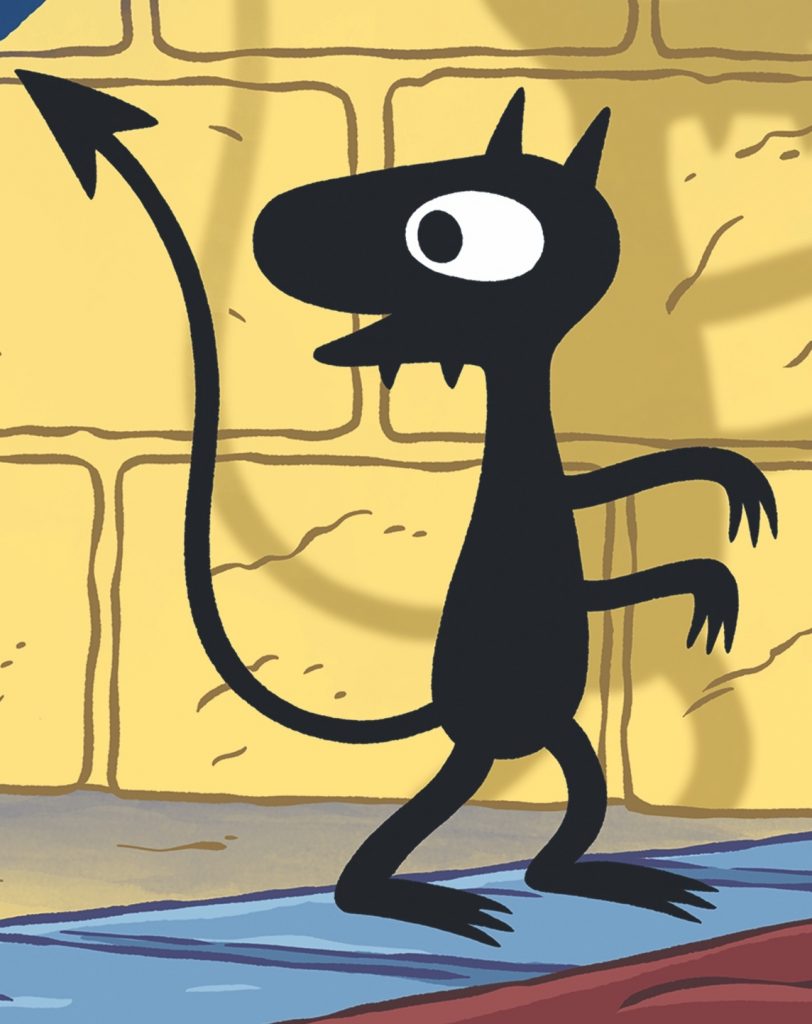 “Know that little voice in your head that tells you to do the right thing? I’m the guy yelling over it.”
“Know that little voice in your head that tells you to do the right thing? I’m the guy yelling over it.”
Luci: A Demon bequeathed to Beanie by a mysterious organization. He’s often the voice of evil, acting as the literal devil on Beanie’s shoulder. Despite this, we see signs of compassion for his friends despite his constant encouraging of bad decisions. He is portrayed by Eric Andre, of the Eric Andre show on Adult Swim and Man Seeking Woman on FXX.
Technical Difficulties
Though for what I’ve praised, I’ll also mention the show is not without flaw. First and foremost, that the audio mixing is incredibly off. The compositions are very much sound like they’re in the distal background – which eerily silences some of the tenser moments of the series, and the muffled sound effects can be hit or miss.
Sometimes they’re loud. Other times they are soft. And often, they’re inconsistent.
The music on the series is hit or miss. While it’s not composed by Danny Elfman, the music does feature compositions by Mark Mothersbaugh. The famous front man of the band, Devo.

Known for Their 80’s Hit: Whip It.

Coincidence? Maybe.
There are times the sound works but other times where it’s oddly silent. Again, attributable to either mixing or perhaps, just an oddly soft stylistic choice.
Overall Take
https://youtu.be/Gp_RnJcb8Ig
Despite all the mixed love and hate, I personally recommend watching Disenchantment. Especially if you’re a Groening fan or just a fan of animation. Though the show is doing very well in the 29 year old demographic ,I wonder how much of a newer audience it can generate. Still, if you like animated fantasy comedy, give it a go.

